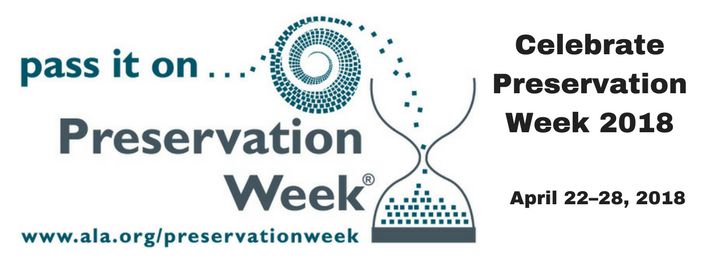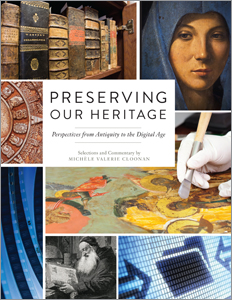Celebrating Preservation Week 2018: an interview with Michèle Valerie Cloonan

ALA encourages libraries and other institutions to use Preservation Week to connect our communities through events, activities, and resources that highlight what we can do, individually and together, to preserve our personal and shared collections. In collaboration with Facet Publishing, UK, we spoke with some of the field's leading figures to discuss the importance of preservation. First up is Michèle Valerie Cloonan, author of the classic text Preserving our Heritage: Perspectives from Antiquity to the Digital Age.
Why is preservation awareness so important?
I am in the UK right now. Just yesterday I toured a historic site that included treasures from its rich archives. The archivist showed us autographs and sketches by well known artists. Some of the bindings were in poor shape, but the inks and papers were in very good condition. After we all admired the wonderful items, the archivist said, "You'll be glad to know that we have just digitized everything so you will have easy access to the materials. We are currently looking into off-site storage facilities for the originals." One of the people on the tour, with real pain in her voice, asked "does that mean that we will never be able to see the originals again?" Everyone else in the group nodded in accord. A discussion ensued, and the archivist assured us that we could see the originals if we made special requests, though depending on where the collections will be stored, it might take a while to retrieve them.
It was enlightening to be in the role of the general public, and I didn't offer any perspectives; I just listened. The lesson that I took away is that we aren't doing a very good job of explaining to the public what the role of digitization is in a preservation program. The archivist inadvertently made it sound as though the digitized records would replace the originals. The public expects us to effectively steward our collections, which belong to us collectively.
 We need to get a positive message out there: digitization gives the user 24/7 access, but this kind of access doesn't diminish the importance of--and access to--the original.
We need to get a positive message out there: digitization gives the user 24/7 access, but this kind of access doesn't diminish the importance of--and access to--the original.
What are some of the ways that libraries and other institutions can reach out to communities about the importance of preservation?
How about a Preservation Roadshow, or Preservation Library Show? Or regular workshops? In public libraries we could hold sessions in which we invite people to bring in items in need of repair, or perhaps re-formatting. I remember a few years ago Parade Magazine advised people to re-format their old home movies and throw away the originals. Now, people are advised to save everything "in the cloud." Lots of people think that they are preserving their photos on Facebook, or on their phones. They don't realize how vulnerable their digital collections are.
It was a lot easier to explain deterioration to people in the "brittle book era." The landscape is far more complex now. We need to prepare kits or educational packages for the public. We should do this at the national level, too. LC, the British Library, and some other institutions have information on their websites, but there needs to be even more out there. We need an effective update to Slow Fires which didn't offer advice. Instead, it painted a rather gloomy picture.
What are some current or proposed digital collections initiatives from cultural institutions that give you hope for the future?
Over the past twenty years there have been a number of magnificent projects: American Memory at the Library of Congress, Europeana, the Digital Public Library of America. The challenge is for projects to develop funding strategies that will assure that programs are sustainable.
There is also the need for major institutions to do the appropriate strategic planning for digital preservation. For example, the British Library's 2020 plan to preserve their digital collections in a trusted digital repository is a positive initiative.
Look for more posts celebrating Preservation Week in the coming days.
